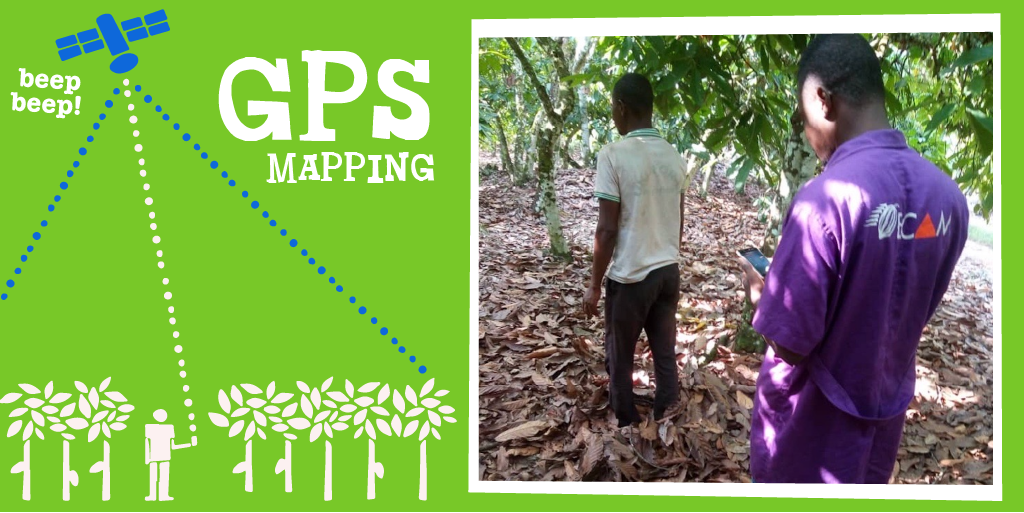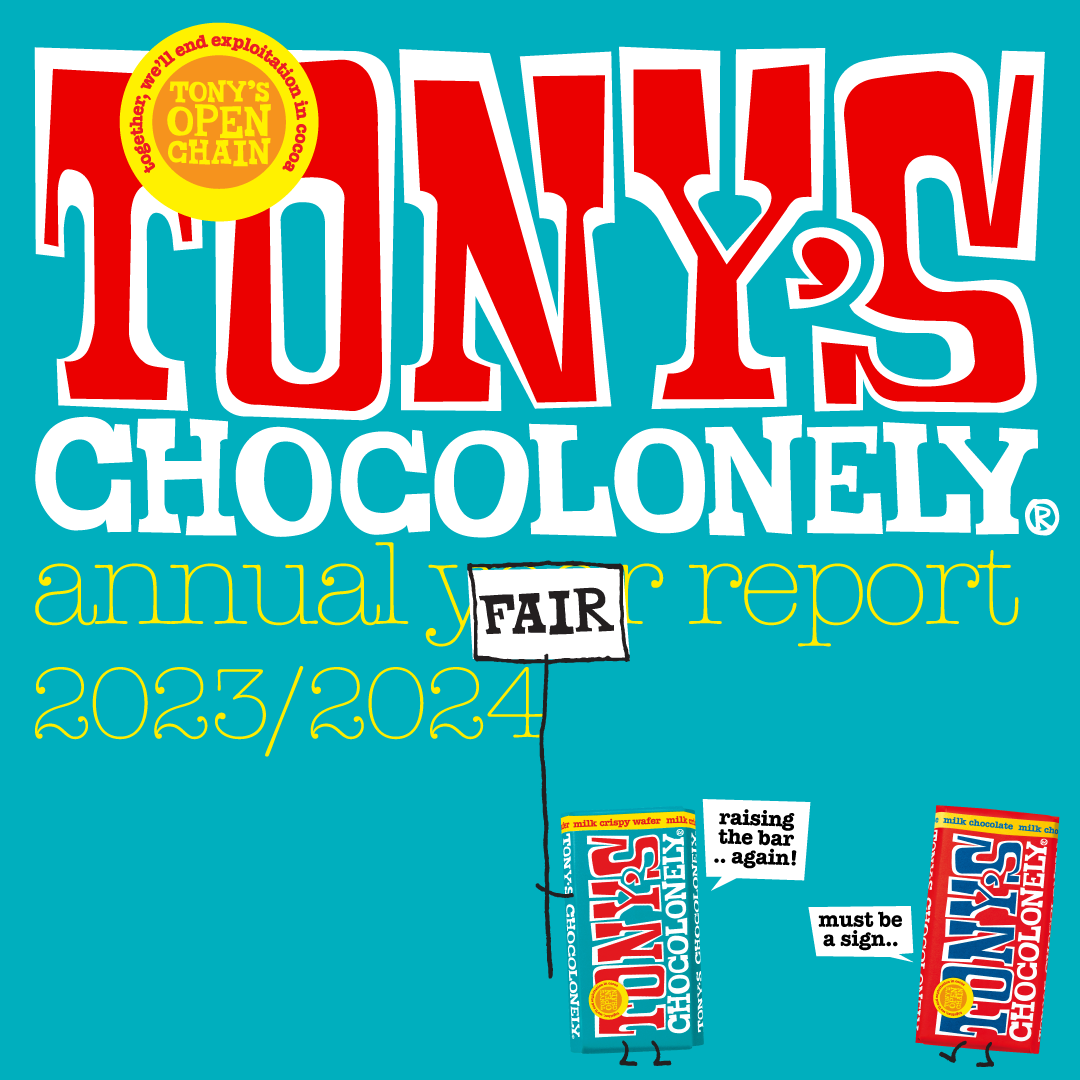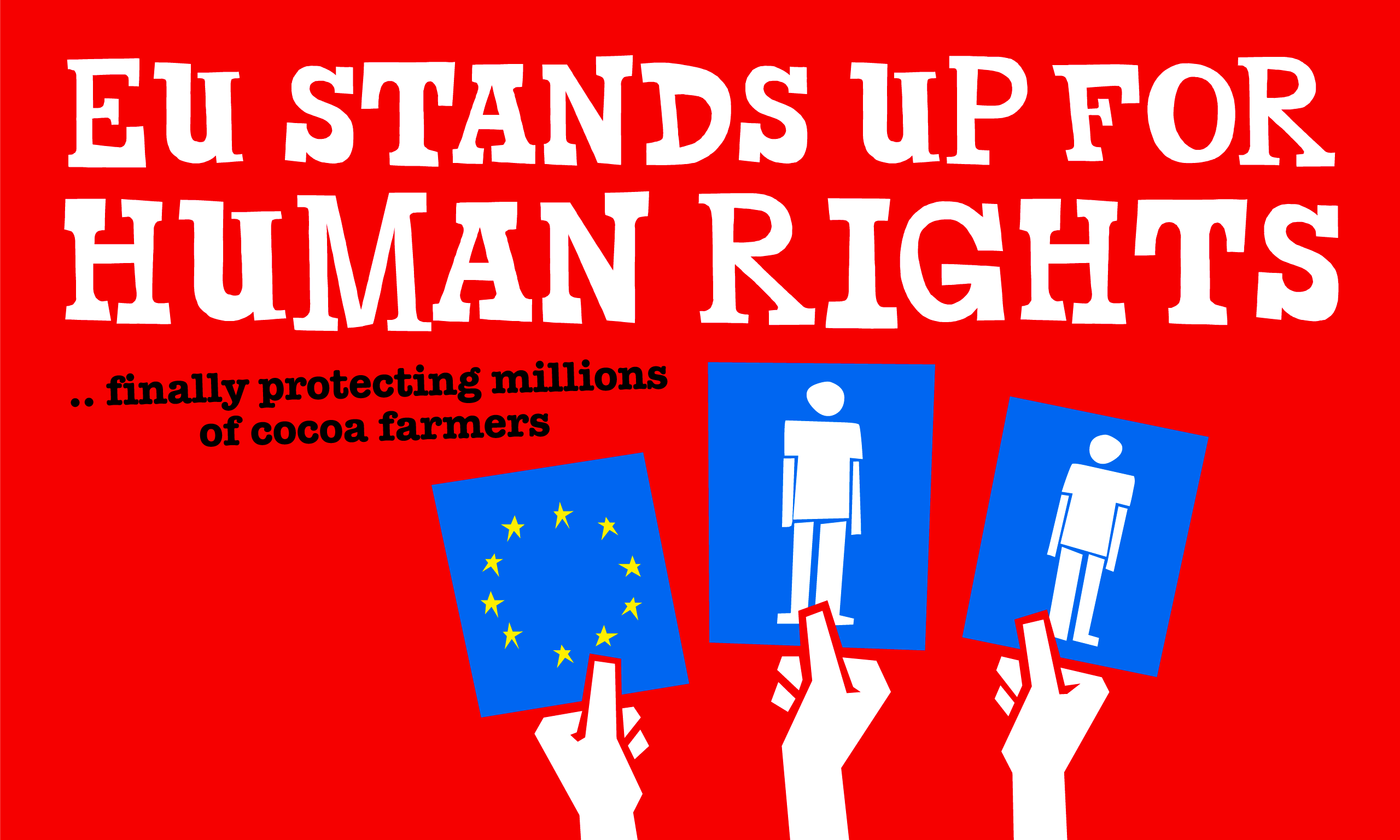Deforestation is a major issue, also present in the cocoa industry
Big chocolate companies are paying far too little for their cocoa, the root cause of modern slavery and illegal child labour

Deforestation is a major, global issue also present in the cocoa industry. Big chocolate companies are paying far too little for their cocoa, the root cause of modern slavery and illegal child labour. What’s little known is that this also causes some farmers to use high-yielding, protected rainforests for their crop as to get faster results – and this can have devastating effects on local forestry.
Together with our farming partners, we are working to address poverty and inequality in cocoa, whilst taking direct measures to stop deforestation. We understand that we're not a member of the Cocoa and Forest Initiative (CFI), but we don’t believe they won't go far enough. For us, it's time for action, now.
What we're doing:
We’re using 5 sourcing principles (fully traceable beans, paying a higher price, working with strong farmers, long term contracts and increasing productivity & quality) to make all chocolate 100% slave free. We want to inspire other companies to do the same, as this is the best way to solve problems in cocoa including deforestation.
Having fully traceable beans has allowed us to GPS-map cocoa farms with our farming cooperative partners. GPS mapping allows cooperatives to estimate the size of their farms in order to increase productivity, and also identify the location of their farms to see if the land is being farmed in protected rainforests or national parks. For the Ivory Coast, all our partners have been mapped. For Ghana, we're working hard to complete mapping in the coming months. We compare our data with that of the National Parks & Reserves so that we can make sure that if a farm is within a protected area, we can help to relocate them. To-date, none of our farming partners are in protected areas or even buffer zones, so the risk seems low for now. Looking ahead, we will aim to map all new cooperative partners within their first year so that we can address any problems from the start.
In well organised cooperatives, farmers are stronger together. Our partners are therefore very important in countering deforestation, as the cooperatives know their members best and can educate and guide them in matters of sustainability. They also hold certification audits, so if one member violates the law, it is a risk for all.
Our productivity and quality programs are aimed at raising cocoa-production in existing farms, making the need for plots in protected rainforests unnecessary. We offer knowledge, training and financial aid to invest in current farms. We also support farmers in planting shade trees, some 17.000 last book year, to reduce the impact of severe drought. Shade trees increase biodiversity and restore ecological balance, which means fewer pests, fewer chemicals, and ultimately, saving the farmer time and money.
You can read more about our impact-making activities in our Annual 18-19 FAIR report.
What still has to happen.
The non-binding commitments of the CFI are not going far enough as their plans only support their members, a small part of the value chain. Regulation is needed to force companies to take responsibility for their supply chain. They must help to reduce deforestation and address the root-cause of inequality in cocoa, poverty.
Only together can we make chocolate 100% slave free. You can help us today by becoming a Serious Friend, and if you haven’t, sign our petition for change!



